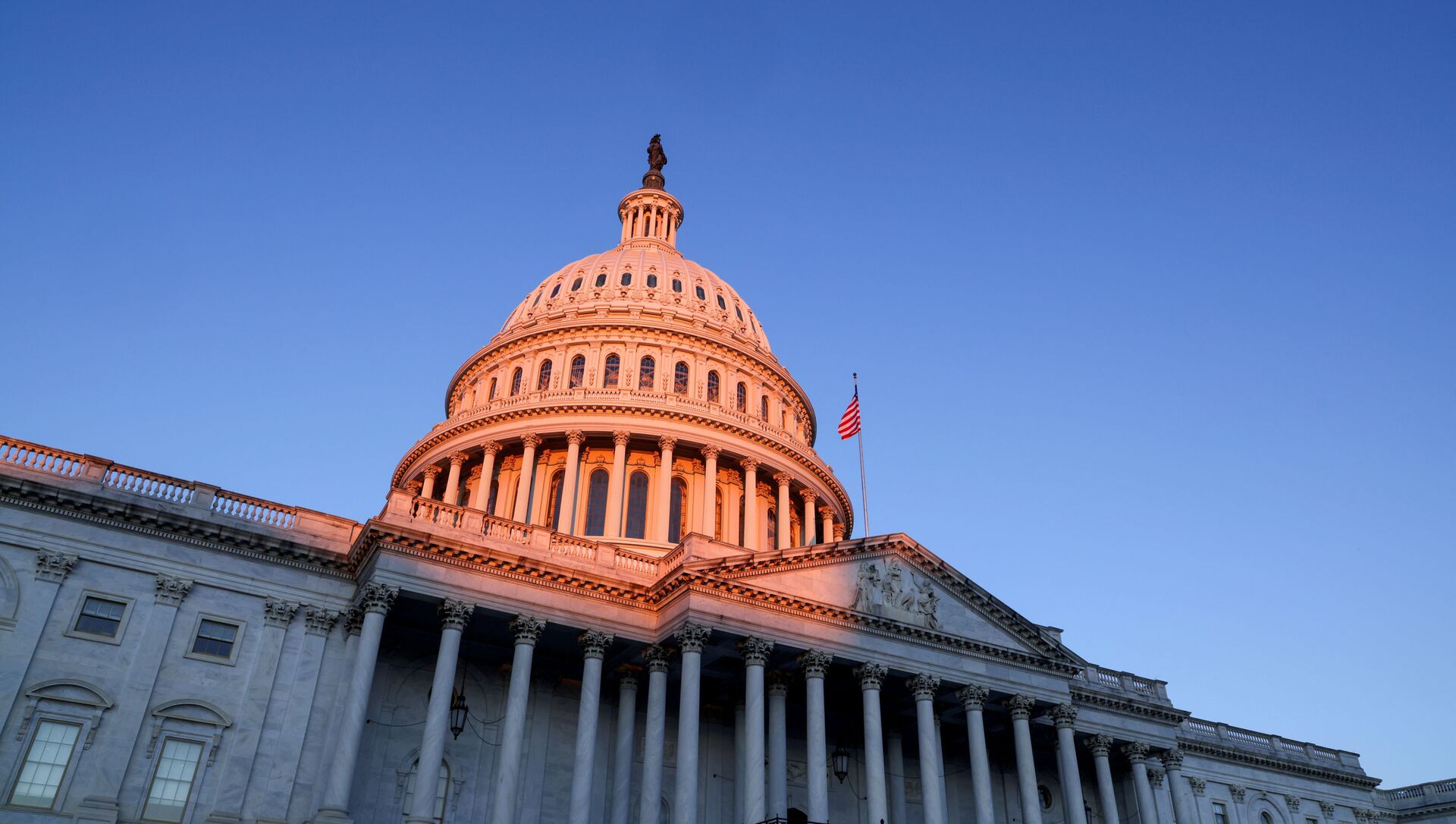US Senate Votes to Go Forward on Hotly Contested $1 Trillion Infrastructure Bill
23:20 GMT 28.07.2021 (Updated: 00:54 GMT 29.07.2021)

© REUTERS / JONATHAN ERNST
Subscribe
Senate Majority Leader Chuck Schumer (D-NY) said Wednesday that he hoped to pass both the bipartisan infrastructure bill and a budget framework before lawmakers leave for their August recess on August 9. “It might take some long nights. It might eat into our weekends, but we are going to get the job done and we are on track," he said.
The US Senate voted 67-32 to move forward on the massive infrastructure bill Wednesday after reaching an agreement about transit funding that stalled an earlier test vote on the bill.
The amount the two sides agreed to was $987 million, but it could reach $1.2 trillion if extended for eight years. However, they await a final price tag from the Congressional Budget Office. However, some of its provisions, according to the White House, include $110 billion toward roads, bridges, and other major projects; $11 billion for transportation safety programs; $39 billion to modernize transit and improve accessibility for disabled and elderly people; $66 billion toward railroad projects; $7.5 billion for a national network of electric vehicle charging stations; and $73 billion towards power infrastructure and clean energy transmission; $21 billion for environmental remediation; and $73 billion toward clean drinking water, among other expenses.
According to the Associated Press, which cited a Republican budget summary, the bill would be paid for in part with $56 billion in increased tax revenue brought in by economic growth, but also $205 billion in unused COVID-19 relief aid created by the American Rescue Plan in March 2021 and $53 billion previously set aside for unemployment insurance that several state governments have decided to close early.
The bill is a rarity in the 117th Congress, which has so far excelled mostly at gumming up the works on bills incapable of defeating a Republican filibuster in the Senate, which can permanently stall a bill's progress if a two-thirds majority cannot be gathered to override it. The threat of a filibuster has been so severe over the last seven months that many Democrats have taken to calling on US President Joe Biden to end the filibuster, which isn't a constitutionally mandated rule of the Senate. He has thus far declined, insisting that bipartisanship is the only way forward.
Speaking Wednesday afternoon in Pennsylvania, Biden said after hearing that a deal could soon be reached that "while there's a lot we don't agree on, I believe that we should be able to work together on the few things we do agree on."
However, this bill is far from the massive $3.5 trillion bill Biden has also proposed, which would include child care, tax breaks for working families, along with extensive remedial efforts to combat climate change and a slew of other projects over the next decade.

